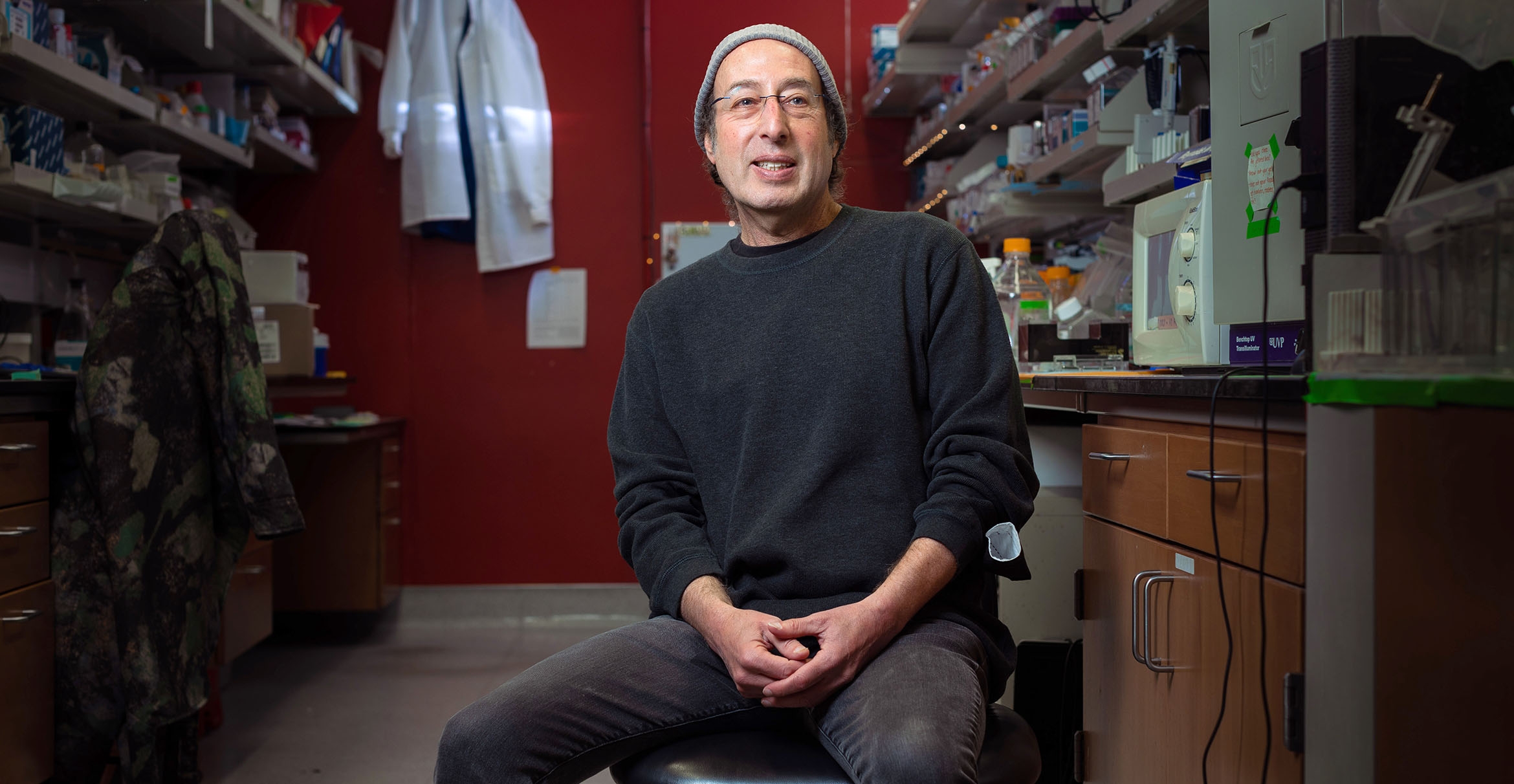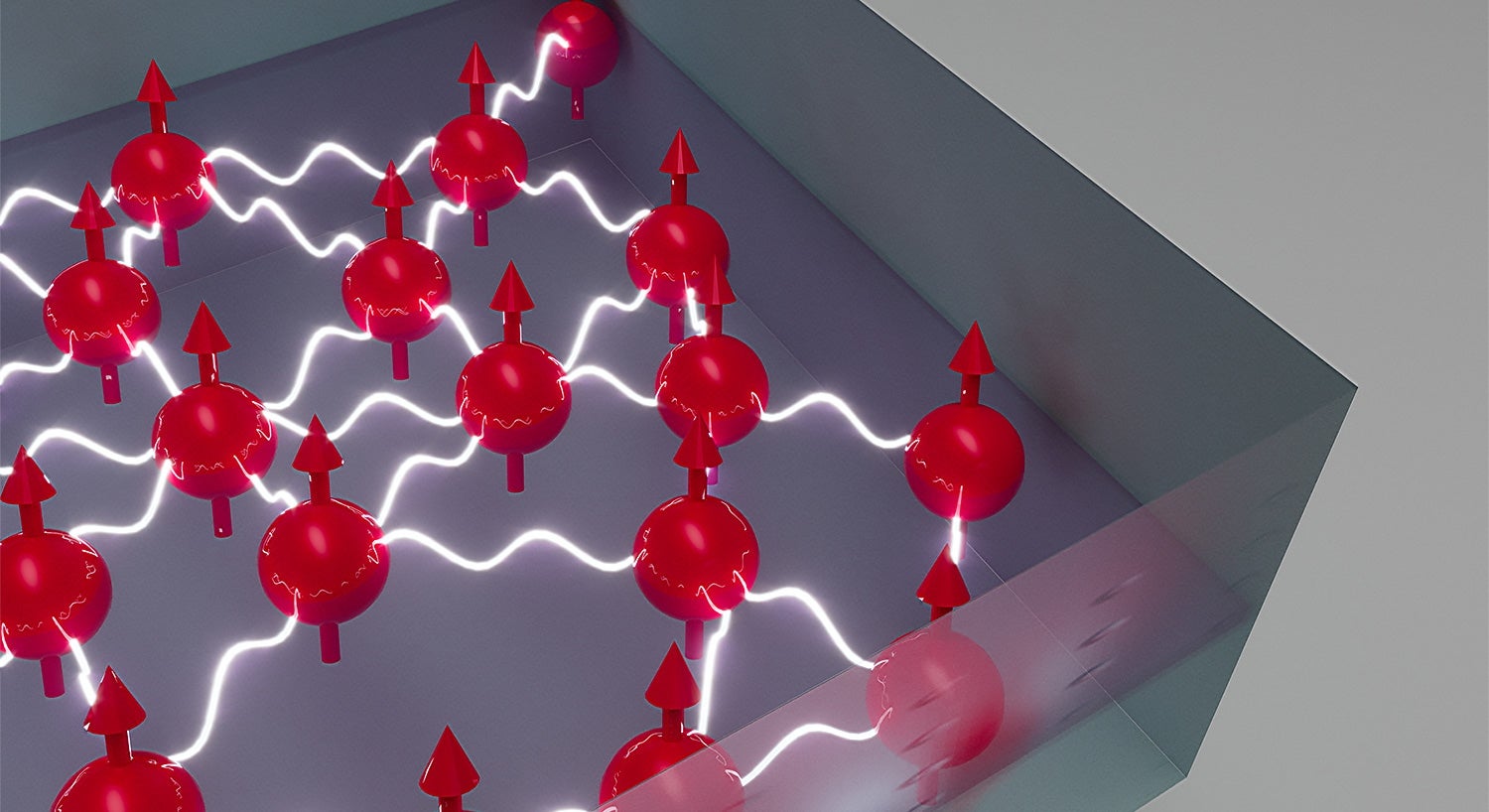
A peek inside the quickening race to understand, treat — and even cure — Alzheimer’s disease
After years of setbacks in the realm of Alzheimer’s disease research, several pharmacologic treatments have now been approved by the FDA.
Yet, says neuroscientist Kenneth Kosik, M.D., a leading expert in the field, “While these treatments are a clear step forward and offer some degree of hope, we still have a long way to go.”
Kosik, the Harriman Professor of Neuroscience Research and co-director of the Neuroscience Research Institute at UC Santa Barbara, will elaborate on that point, and detail how researchers are charting a path toward understanding — and ultimately finding a cure for — Alzheimer’s disease in an upcoming public talk. The event, “Keeping Pace with the Rapid Advances in Alzheimer’s,” will take place from 5–7 p.m. on Thursday, Sept. 28, in the Music Academy’s Hahn Hall. It is free and open to the public, with reservations.
“We will discuss how we should consider whether these new treatments are appropriate for our loved ones,” added Kosik, who will share his expertise on our current understanding of cognitive degeneration and where the field is going from both research and clinical perspectives. “One issue we might raise,” he said, “is how do we approach the diagnosis of Alzheimer’s when a person is still asymptomatic?”
As the sense of urgency around Alzheimer’s intensifies, Alzheimer’s research at UC Santa Barbara — Kosik at the helm — is at a flashpoint. “Our research now stands on the cusp of some very significant discoveries,” he noted. The university since 2010 has been part of the Tau Consortium, collaborating with a network of clinicians and scientists to tackle this devastating disease. UCSB scientists have long theorized that the tau protein could be a culprit in the disease, and tau is now increasingly the focus of investigation for the entire field of Alzheimer’s research.
By delving into the genetic origins of Alzheimer’s, physician-scientist Kosik is tracing the movement of the disease through the centuries and around the globe, aiming to find ways to disrupt the formation of tau and the sticky plaques that are its hallmark. His longtime collaboration with renowned Colombian neurologist Francisco Lopera and their fieldwork in Antioquia, Medellín, with the world’s largest genetic cohort of early-onset Alzheimer’s patients, have yielded clinical trials and precious clues in the effort to stop the disease.
UC Santa Barbara has a leading edge in this work, able to sequence whole genomes affordably and analyze terabytes of data on campus. Through CRISPR, scientists conduct “surgery” on individual genes and use stem cells to create working 3D replicas of the brain that can model differences between healthy patients and those with genetic mutations leading to rare familial forms of Alzheimer’s. UC Santa Barbara has collected over 1,000 human genomes — including those from a large Colombian family with a fatal legacy of neurodegeneration — that could reveal potential therapies.
“Partnership with other institutions and foundations is key to accelerating important research on this campus, such as Ken Kosik’s transformative work on neurodegenerative diseases,” said Pierre Wiltzius, the Susan and Bruce Worster Dean of Science at UC Santa Barbara. “Ken’s approach to discovering the mechanisms underlying the development of Alzheimer’s is novel, and through our collaborative efforts, including the support of the John Douglas French Alzheimer’s Foundation, among others, he and his collaborators will be able to write a new chapter on the mysteries of the human brain.”
Kosik’s many accolades include awards from MIT, Harvard Medical School, the Alzheimer’s Association, the American Association of Neuropathologists, NASA and the American Association for the Advancement of Science. The co-author of two books, his work has also appeared in the New York Times, the Wall Street Journal, and the New Yorker, as well as on BBC and CNN, in the NOVA documentary “Can Alzheimer’s Be Stopped?” and on “60 Minutes.” He completed his M.D. at the Medical College of Pennsylvania in 1976. His prestigious career includes 24 years at Harvard Medical School and appointments at Tufts New England Medical Center, McLean Hospital, Brigham and Women’s Hospital, the Massachusetts General Hospital and the Dana-Farber Cancer Institute.
Shelly Leachman
Editorial Director
(805) 893-2191
sleachman@ucsb.edu



